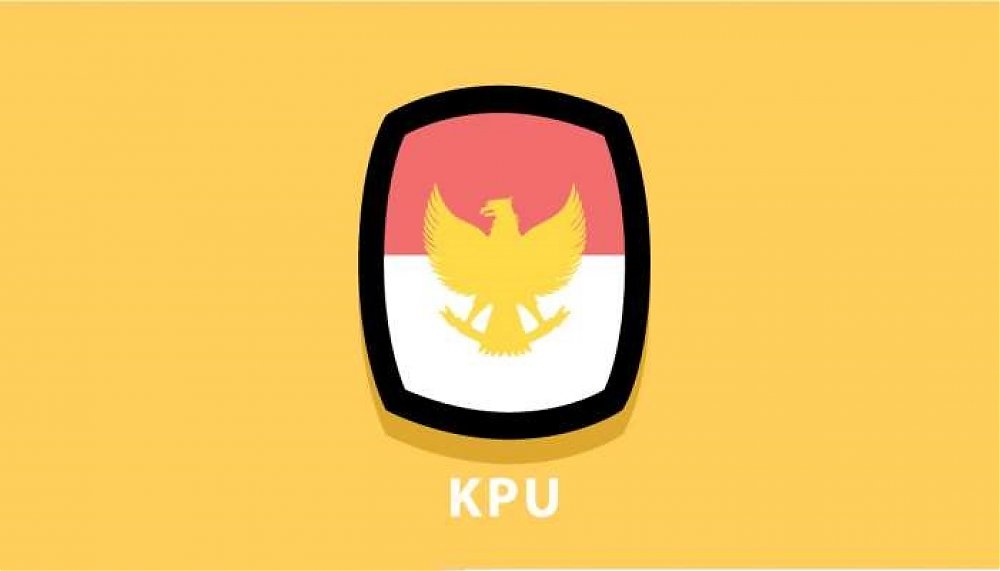Independence and honor should be two things that go hand in hand for election organizers. Independence is more institutional while honor is more individual. To maintain the independence of their institutions, members of election organizers maintain honor based on the code of ethics of election administrators. Deviance and neglect of one of them, can damage the other one. Independence will be justified by ethical violations. Conversely, ethical violations can have an impact on independence.
However, several events in the Indonesian election have shown that the two cannot go hand in hand. Among them was in the election organizers' ethics trial which was held by the Election Organizer Honorary Council (DKPP) at the verification stage of the political parties participating in the election.
Complaints about alleged ethical violations during the verification stage of political parties participating in the 2024 Election are similar to the 2014 Election. The difference is that in 2024, the Complainant is a regional KPU member, while in 2014 the complainant is the Election Supervisory Body (Bawaslu). Then, in 2024, what was complained about was the actions of KPU members who hierarchically manipulated election participation, while in 2014, what was complained about was the actions of KPU members who used the political party information system (Sipol) in verifying political parties.
In general, the election ethics court through the DKPP can answer the need for guarantees for the independence of the KPU. However, in the context of the stages of verification of political parties participating in elections, the independence and honor of election organizers have very tough challenges to be guaranteed simultaneously intact.
The reason for this note is that the Indonesian elections have very stringent requirements for registering political parties. Basically, the formation of political parties and their participation in elections is a human right (HAM) in the political field for citizens whose freedom must be guaranteed constitutionally. But instead, the ruling party in the DPR and the government, sets conditions for the formation and participation of parties in elections. Political parties must have offices and members in all provinces, 75% districts/cities, and 50% sub-districts. This very onerous requirement is not only very difficult for political parties but also for members of the election organizers and officials in administration and verification.
At least, there are two consequences of the very heavy requirements for membership in political parties. First, the hijacking of political parties. Second, collusion and corruption. Hijacking political parties means the function of representation is cut off and the aspirations of the people turn to the leaders/elite of political parties and owners of capital. Collusion and corruption mean that parties are encouraged to use various means, including bribing election organizers and officials, so they can qualify to participate in elections.
In the context of the 2014 election, the KPU tried to guarantee independence and respect by avoiding these two consequences through Sipol. The Sipol digital format is believed to be able to overcome the heavy administrative burden of printed documents in verifying political parties. Unfortunately, the use of the Sipol led to complaints from KPU members to the DKPP for committing ethical violations. By the DPR political party, Sipol is considered to have exceeded the law. Then, Sipol was also considered as a foreign technology that could threaten the independence of the KPU.
In contrast to the context of the 2024 Election, the KPU has not even optimized Sipol in dealing with the complexities of verifying political parties. In the news coverage in the mass media as well as evidence and testimony hearings held by the DKPP, it was explained that central KPU members hierarchically asked KPU in the regions to pass political parties to become election participants, even though some did not meet the requirements.
From these two incidents, there was a difference in how the KPU responded to the conflict between political rights and the very tough conditions of being an election participant. The KPU in the 2014 election, tried to violate its honor code of ethics to get around the law. The KPU in the 2024 Election, violated the honor code of ethics and the law, at the same time. The difference in this method then illustrates the difference in the quality of the KPU's independence.
Differences in the meaning of independence
The manner in which the violation was committed and the quality of the independence of the KPU can be distinguished because basically there is a difference in the meaning of the independence of election organizers. It could be that the difference in meaning here is due to differences in understanding, maybe even understanding, of the Indonesian election stakeholders.
The independence of election organizers is firmly guaranteed in Indonesian laws and regulations. Article 22E paragraph (5) of the 1945 Constitution of the Republic of Indonesia emphasizes the word independent as one of the characteristics of the general election commission. This constitutional provision was then derived in Article 1 point 8 of Law 7/2017 which reads, the General Election Commission, hereinafter abbreviated as KPU, is an election management body that is national, permanent and independent in carrying out elections.
Hierarchically and positivistically, the national, permanent and independent election commission is the KPU. Law 7/2017 does not include the nature of independence in the sense of the Election Supervisory Body (Bawaslu) and DKPP.
Although not directly, Article 7 paragraph (3) of Law 7/2017 provides an explanation of the meaning of KPU independence. It reads, in holding elections, the KPU is free from the influence of any party related to the implementation of its duties and authorities. This sound actually corresponds to the original intent consensus of Article 22E paragraph (5) of the 1945 Constitution of the Republic of Indonesia, although later the independence of the KPU in the 2004 election was manifested by professional non-political party membership along with full authority in administration and budgeting.
Law 7/2017 also links independence with honor. Article 157 paragraph (1) emphasizes that the DKPP formulates and establishes a code of ethics to maintain the independence, integrity and credibility of all members of the election administration at all levels. Law 7/2017 only has two words "honor" aimed at the DKPP and five words "respect" to emphasize dishonorable dismissal as sanctions for election organizers who violate the code of ethics.
The honor of election organizers has no reference in the constitution. Only electoral laws are the main basis for the honor of election organizers and their institutions. Starting from Law 12/2003 with an ad-hoc institution called the General Election Commission Honorary Council (DK-KPU). Then, in Law 15/2011 DK-KPU changed to DKPP as a permanent institution.
The International Institute for Democracy and Electoral Assistance (International IDEA) in several of its publications has a different meaning of KPU independence. This electoral research institute divides three models of election management bodies. First, the Independent Model. Second, the Governmental Model. Third, Mixed Model (Catt, 2014).
Independent Model means having a number of aspects of independence. The independence that International IDEA emphasizes includes the authority to make regulations, the composition of membership not from elements of government (triaspolitika), a definite term of office for administrators, and budgeting that guarantees the electoral cycle.
Then what is the definition of Governmental Model and Mixed Model? The short explanation is: the more these aspects are intervened by the government (triaspolitika), the more the model of the EMB becomes a Governmental Model. Then, the more these aspects are mixed which ones are intervened by the government, and which aspects are independent (non-government), then this will become a Mixed Model.
From these differences in the meaning of independence, the attitude of the KPU in verifying political parties for the 2014 election is in accordance with the meaning of independence according to laws and regulations and the same age as the meaning of independence according to International IDEA. However, from these two meanings, the KPU in the context of the 2014 Election is closer to the meaning of independence according to International IDEA.
Meanwhile, the KPU's stance in verifying political parties for the 2024 election is not in accordance with any meaning of independence. KPU in this context does not comply with independence in statutory regulations, because it ignores the election participation requirements that are not fulfilled. This is also inconsistent with International IDEA's meaning of independence because of the unclear motives of the KPU in passing all political parties, except for rumors about the motives ordered by government parties who want to split the opposition parties through new parties. Rumors of this motive can be connected with the closed election of KPU(-Bawaslu) members as a form of election for KPU members which is not in accordance with the meaning of KPU independence according to International IDEA.
Change the conditions for party membership
So that the conflict between the independence and honor of the election organizers no longer occurs in the verification of political parties participating in the election, the current conditions must be changed. Don't forget the DKPP ethics trial of central KPU members in the 2014 election, as an evaluation. Then, the ethics trial of central, provincial and district/city KPU members in the 2024 Election, must become a momentum for national awareness of the importance of revising the requirements for political party participation in the election law.
When compared with other countries, the requirements for membership in political parties in Indonesia are among the most complex. In Australia, for example, it is sufficient for a political party to have a minimum of 1,500 members who are included in the voter list, or for a political party to have at least one sitting Senator or Member of the DPR. In the 1999 election, Indonesia also had membership requirements, it was enough for a political party to have at least 50 members.
The rest, verification of political parties is more on objective things, namely transparency and financial accountability of political parties. It is objective because this requirement is not biased by political parties big/small, old/new, and inside/outside parliament. Objective also means that this is a condition that determines the merits and demerits of political parties and is relevant to the function of elections to evaluate government to be better and free from corruption.
These objective requirements include the process of changing the membership requirements, indeed they cannot apply to the 2024 Election. Let then the DKPP's decision and the internal improvements of KPU members ensure the quality of independence and honor of the election organizers. However, if the requirements for the participation of political parties remain too onerous, the independence and honor of election organizers will always be at stake in the verification stage of political parties. []
USEP HASAN SADIKI











